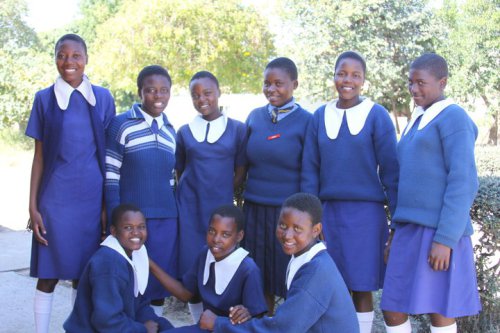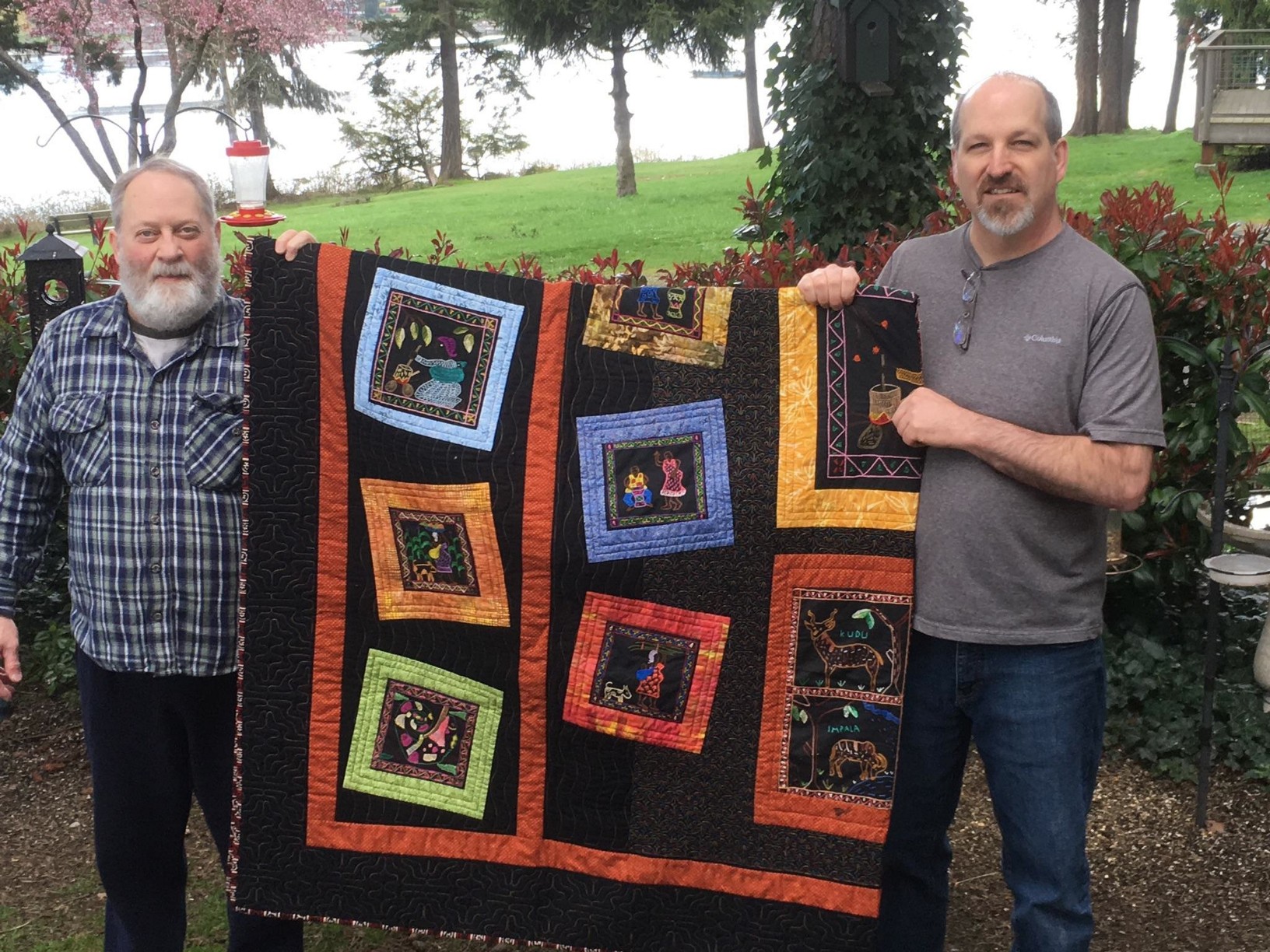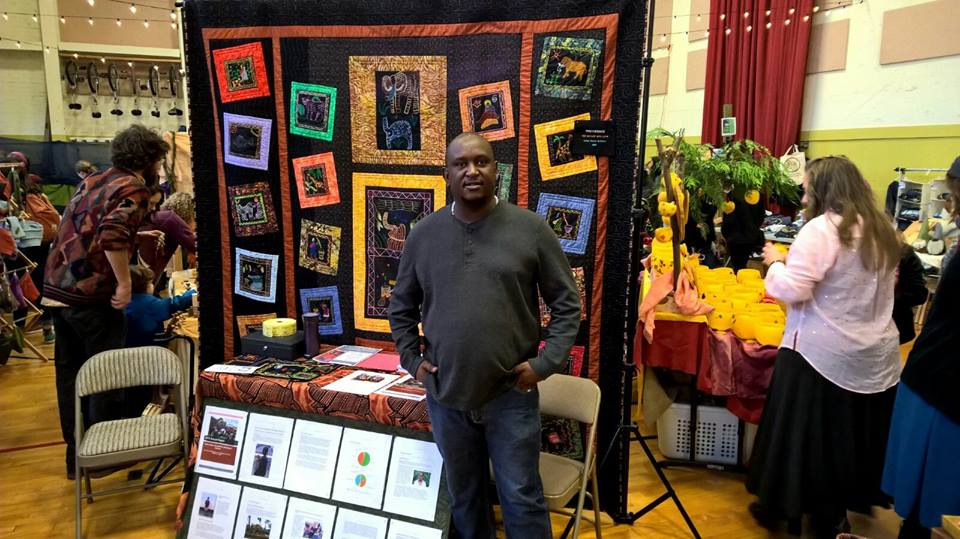 International Women’s Day is Wednesday, March 8, and has been observed for decades as a celebration of women’s achievements across the globe and resounds the call for gender equality. International Women’s Day is a worldwide event that celebrates women’s achievements – from the political to the social – while calling for gender equality.
International Women’s Day is Wednesday, March 8, and has been observed for decades as a celebration of women’s achievements across the globe and resounds the call for gender equality. International Women’s Day is a worldwide event that celebrates women’s achievements – from the political to the social – while calling for gender equality.
It has been observed since the early 1900s. Its roots can be traced to 1908, when 15,000 women marched through New York City demanding voting rights, better pay and shorter working hours. A year later, the first National Woman’s Day was observed in the US on February 28, in accordance with a declaration by the Socialist Party of America.
In 1910, a woman called Clara Zetkin – leader of the ‘women’s office’ for the Social Democratic Party in Germany – tabled the idea of an International Women’s Day. She suggested that every country should celebrate women on one day every year to push for their demands.
A conference of more than 100 women from 17 countries agreed to her suggestion and IWD was formed. In 1911, it was celebrated for the first time in Austria, Denmark, Germany and Switzerland on March 19.
In 1913, it was decided to transfer IWD to March 8, and it has been celebrated on that day ever since. The day was only recognized by the United Nations in 1975, but ever since it has created a theme each year for the celebration. It is not affiliated with any one group, but brings together governments, women’s organizations, corporations and charities. The day is marked around the world with arts performances, talks, and rallies, networking events, conferences and marches. Countries celebrate it in different ways. It is an official holiday in a number of places including: Afghanistan, Armenia, Azerbaijan, Belarus, Burkina Faso, Cambodia, China (for women only), Cuba, Georgia, Guinea-Bissau, Eritrea, Kazakhstan, Kyrgyzstan, Laos, Madagascar (for women only), Moldova, Mongolia, Montenegro, Nepal (for women only), Russia, Tajikistan, Turkmenistan, Uganda, Ukraine, Uzbekistan, Vietnam and Zambia.
The original aim – to achieve full gender equality for women the world – has still not been realized. A gender pay gap persists across the globe and women are still not present in equal numbers in business or politics. Figures show that globally, women’s education, health and violence towards women is still worse than that of men.
According to the World Economic Forum, the gender gap won’t close until 2186.On IWD women across the world come together to force the world to recognize these inequalities – while also celebrating the achievements of women who have overcome these barriers.
The theme for IWD 2017 is #BeBoldForChange – encouraging people to step up and take groundbreaking action to help drive gender equality and create a world where every woman feels empowered, where every woman is independent, inspired and self-fulfilled .It calls for an inclusive environment and believes that regardless of gender, the full value of each individual’s contribution can be realized only when we treat one another with respect, trust and dignity
Tariro has over the years helped drive gender equality by educating and empowering the girl child in high density suburbs of Harare. Tariro’s work with Zimbabwean girls emphasizes the importance of women’s education as an effective response to the AIDS epidemic, early marriages, teenage pregnancies and other socio-economic challenges. – Tariro subscribes to Nelson Mandela’s assertion that “Education is the most powerful weapon which you can use to change the world”. For each of its sponsored students, Tariro provides a comprehensive range of services which include: paying each student’s school fees; examination fees; purchasing uniforms and supplies; sanitary wear; we make textbooks available through a lending library. Tariro believes books permit us to voyage through time, to tap the wisdom of our ancestors. The library connects the students with the insight and knowledge of the greatest minds that ever existed, the best teachers, drawn from the entire planet and from all history to instruct them without tiring and to inspire them to make their own contribution to the collective knowledge of the human species. Currently Tariro is supporting 32 girls (12 in tertiary institutions, 1 at Danhiko Special School, 2 in primary school and 18 in secondary school). Funds permitting we hope to support an additional 10 girls this year.
We at Tariro also believe that – educating a person only in the mind and not also in morals is to educate a menace to society thus we offer extra-curricular activities including an annual conference on HIV prevention, psychosocial support and monthly sessions on sexual and reproductive health and rights.
Education is very important for every child whether boy or girl. It is sad that some communities still discriminate against the education of the girl child. About 57million children around the world are not going to school. The report, Children Still Battling to go to School, finds that 95% of the 28.5 million children not getting a primary school education live in low and lower-middle income countries – 44% in sub-Saharan Africa, 19% in south and west Asia and 14% in the Arab states, UNESCO said. Girls make up 55% of the total and were often the victims of rape and other sexual violence that accompanies armed conflicts, UNESCO said. As the world celebrates International Women’s Day let us look at some of the reasons why girls should get an education.
- Future Educated Generations – An African proverb says, “If we educate a boy, we educate one person. If we educate a girl, we educate a family – and a whole nation.” By sending a girl to school, she is far more likely to ensure that her children also receive an education. As many claim, investing in a girl’s education is investing in a nation.
- Decreased infant mortality: Children of educated women are less likely to die before their first birthday. Girls who receive an education are less likely to contract HIV & AIDS, and thus, less likely to pass it onto their children. Primary education alone helps reduce infant mortality significantly, and secondary education helps even more. The Girls Global Education Fund reports that when a child is born to a woman in Africa who hasn’t received an education, he or she has a 1 in 5 chance of dying before 5.
- Decreased maternal mortality: Educated women (with greater knowledge of health care and fewer pregnancies) are less likely to die during pregnancy, childbirth, or during the postpartum period. Increased education of girls also leads to more female health care providers to assist with prenatal medical care, labor and delivery, delivery complications and emergencies, and follow-up care.
4 Less Child marriages: Child marriage – in some cases involving girls as young as 6 or 8 – almost always results in the end of a girl’s schooling. The result is illiterate or barely literate young mothers without adequate tools to build healthy, educated families. On average, for every year a girl stays in school past fifth grade, her marriage is delayed a year. Educated girls typically marry later, when they are better able to bear and care for their children.
- Decreased population explosion: Educated women tend to have fewer (and healthier) babies. A 2000 study in Brazil found that literate women had an average of 2.5 children while illiterate women had an average of six children, according to UNESCO.
- An increased involvement in political processes: Educated women are more likely to participate in political discussions, meetings, and decision-making, which in turn promotes a more representative, effective government.
- Decreased domestic and sexual violence: Educated girls and women are less likely to be victims of domestic and sexual violence or to tolerate it in their families.
- Decreased support for militancy: As women become more educated, they are less likely to support militancy and terrorism than similarly educated men.
- Improved socio-economic growth: Educated women have a greater chance of escaping poverty, leading healthier and more productive lives, and raising the standard of living for their children, families, and communities.
These and many more are some of the valuable reasons why we should all support education for girls. For every boy that is educated, every girl should be educated too. Help us educate the girl child by donating to Tariro.
- $30 will provide a student with school supplies (pens, paper, and sanitary ware) for the year.
- $80 will provide a student with a new uniform, including shoes, socks, pants/skirt, shirt and tie.
- $100 will cover the annual cost for a student to participate in Tariro’s music and dance ensemble.
- $150 will enable a student to write her Ordinary or Advanced Level exams, which are required for further study
- $300 will cover the annual school fees for one secondary student
- $900 will pay for one semester for one student at university.
You can donate to Tariro online through our Fall Fundraising Campaign site or via our website. You can also mail your donations directly to PO Box 50273, Eugene, OR, 97405. Thank you once again for your support and don’t forget to stay updated with all of Tariro’s endeavors and like Tariro on Facebook!
HAPPY WOMEN’S DAY
Thank you , Tinotenda , Siyabonga Kakhulu , Hikhesile Ngofu , Asante Sana , Ta , Merci ,Gracias , Danke sehr , do jeh , Grazie , Arigato






 International Women’s Day is Wednesday, March 8, and has been observed for decades as a celebration of women’s achievements across the globe and resounds the call for gender equality. International Women’s Day is a worldwide event that celebrates women’s achievements – from the political to the social – while calling for gender equality.
International Women’s Day is Wednesday, March 8, and has been observed for decades as a celebration of women’s achievements across the globe and resounds the call for gender equality. International Women’s Day is a worldwide event that celebrates women’s achievements – from the political to the social – while calling for gender equality.





